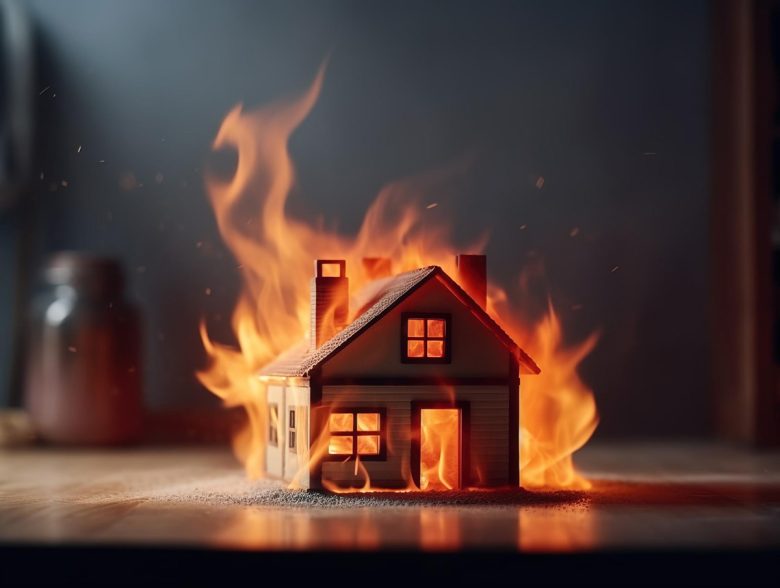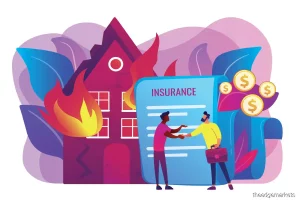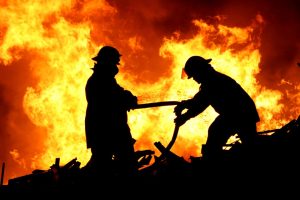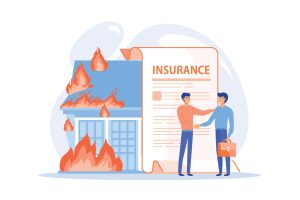In this ever-changing world, unexpected events such as fire can cause serious damage to your home and the things you own. Comprehensive fire insurance is a great way to protect you from the financial impact of such a tragedy. In this guide, we explain what comprehensive fire insurance is, its key components, its benefits, and how important it is for your peace of mind.
How to Understand All the Risks of Fire Insurance?
Comprehensive fire insurance covers more than just fire. It can protect your property from many different risks, including fire. Basic fire insurance only covers fire damage, but comprehensive fire insurance protects against more risks, making it a better option for homeowners.
Components of an All-Risk Fire Insurance Policy:
Fire Insurance
Just like basic fire insurance, full fire insurance covers losses that are a direct result of fire. This includes damage to the structure of your home, your belongings, and additional living costs if your home is uninhabitable.
Cover More Risks
With comprehensive fire insurance, you can cover a wider range of risks. Depending on the policy, these risks can include earthquakes, floods, storms, vandalism, and other specific risks. With this extra protection, you can ensure that your belongings are more secure.
Protect Someone’s Property
Comprehensive fire insurance not only protects the structure of your home but also your personal belongings if they are damaged or destroyed in certain events. This includes technology, clothing, furniture, and other items in your home.
Liability Insurance
Liability coverage is usually part of a full fire insurance policy. This can protect you financially if you are found responsible for injuring someone or damaging their property. This can be significant in terms of legal costs and possible settlements.
Supplementary Life Insurance (ALE)
If your home becomes uninhabitable as a result of a covered event under your policy, ALE insurance can help you pay for temporary living expenses such as hotel stays, food, and other necessary lodging expenses. This ensures that you and your family have a place to stay while your home is repaired or rebuilt.
Benefits of Full Fire Insurance:
All-Round Security
The biggest advantage of full fire insurance is that it protects you against all kinds of risks. Covering a wide range of risks can help you be better prepared for the unexpected, giving you peace of mind when things are uncertain.
Money and Security
Comprehensive fire insurance protects your finances by reducing the costs of repairing damaged property, replacing lost items, and paying legal claims. This ensures you have the tools you need to rebuild and recover from a covered event.
Suitable Coverage
Comprehensive insurance differs from regular fire insurance in that it can be tailored to your needs. You can choose which risks you want to insure yourself against. This allows you to tailor your policy based on the specific risks your property may be exposed to.
Simplify the Claims Process
Comprehensive fire insurance plans often simplify the claims process by combining different types of coverage into one policy. This makes documentation easier and speeds up the claims process in stressful times.
View Coverage Limits and Deductibles:
Comprehensive fire insurance can protect you in several ways, but it’s important to carefully review your policy’s limits and deductibles. Coverage limits should be consistent with the costs of rebuilding the home, replacing items, and paying for additional living expenses. A deductible is the amount you must pay out of pocket before your insurance will cover you. Choosing the right deductible can impact your payments.
Factors that Influence the Premium Costs of Comprehensive Fire Insurance:
There are many factors that influence the cost of full fire insurance:
Location
The extent to which your premium is influenced by the location of your home is important. Homes located in places where certain risks occur more often, such as earthquakes or floods, may have a higher interest rate.
Things Used to Build
The materials you use to build your home can affect your insurance rates. Fire-resistant materials can lower insurance rates because they reduce the chance of serious injuries from fire.
Safety Precautions
Homes with safety features such as security cameras, fire alarms and automatic sprinkler systems may receive lower insurance rates. These steps demonstrate that steps are being taken to reduce the risk.
Claim History
Your insurance rates may be affected by the number of claims you have made in the past, including any fire-related claims. Homes that have had many claims in the past may be charged higher premiums.
Other Things to Consider and Optional Coverage:
Cash Value Versus Replacement Cost for Cash Value
When choosing comprehensive fire insurance, you should consider whether you want coverage based on the actual cash value (ACV) of the item or its replacement cost. ACV looks at how much an item has lost in value over time, while replacement cost shows how much it costs to purchase a new item to replace a damaged or lost item.
Personal Property on the List
You may want to add scheduled personal property coverage for valuables such as jewellery, art, and collectibles. This ensures that these expensive items are properly covered in the event of damage.
Regulation or Legal Scope
If you choose this coverage, it will cover the costs of rebuilding your home to comply with current building codes and laws. It can be important to ensure that the home you are remodelling meets modern standards.
Conclusion:
Comprehensive fire insurance is a great way to protect your finances against the unpredictable events that may occur in your life. Knowing what it covers, what it does for you, and what affects your rates can help you make a decision that’s right for you. Comprehensive fire insurance protects all your assets, from your home and contents to your liabilities. Make sure you talk to an insurance agent to understand your options, learn the details of your policy, and ensure your coverage is exactly right for your needs. When things are uncertain, having comprehensive fire insurance can give you peace of mind and security and give you the confidence and strength to face the future.
FAQs:
1. What does comprehensive fire insurance cover?
Comprehensive fire insurance offers comprehensive coverage that goes beyond basic fire insurance. It includes protection against various perils such as fire, earthquake, flood, hurricane, vandalism, etc. The coverage covers structural damage, personal belongings, liability, and additional living expenses in the event of a covered peril.
2. How does comprehensive fire insurance differ from basic fire insurance?
Basic fire insurance only focuses on fire damage, while comprehensive fire insurance offers broader protection. It also covers other perils such as natural disasters and vandalism, giving you more comprehensive coverage for your property. The inclusion of liability insurance and extended living expenses makes it a more comprehensive option.
3. How can I tailor the comprehensive fire insurance to my specific needs?
Comprehensive fire insurance allows for customisation to meet your unique requirements. You can choose the specific risks you want covered, ensuring your policy is suitable for the specific risks your property may face. This flexibility allows you to put together a policy that seamlessly fits your individual circumstances.
4. What factors influence the cost of a comprehensive fire insurance premium?
Several factors can affect premiums, including the location of your home, building materials, appropriate safety measures, claim history and selected deductibles. Higher premiums may apply to homes in risky areas, and discounts may apply to safety measures such as fire alarms and sprinkler systems.
5. What additional considerations should you take into account when choosing comprehensive fire insurance?
When choosing comprehensive fire insurance, consider factors such as whether you prefer coverage based on actual cash value (ACV) or replacement cost. Additionally, explore optional coverages such as scheduled personal property for valuables and ordinances or legal coverage to address rebuilding costs according to today’s standards. Understanding these nuances can help ensure your policy provides comprehensive coverage tailored to your needs.



